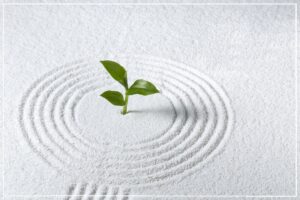Therapy for Grief, Loss & Endings
Grieving is a process
We are fundamentally wired for love and meaning. When we lose the people or things we care about, it is felt in every aspect of our being – body, mind, and spirit. Loss can disorient, disorganize, and disrupt our identity, our place in the world, and our sense of security. Our response to loss is as individual and personal as our fingerprint, a process to be honored and held.
Loss can include the passing of a loved one, the ending of a relationship, being cut off from a loved one, or a transition in your family life cycle. It can also result from a change in your sense of self, security, health, career, finances, or life circumstances.
Grieving a loss is a sacred process of honoring the very important role, needs, and purpose that the person or important thing offered you. Loss represents a fundamental dilemma, how to love and connect with an open heart, and also survive the inevitable endings, changes, transitions, and losses that come with being human.
As the world keeps turning, we can walk alongside you in your moments of need. Our therapists are here to hear your story of love, meaning, purpose, and loss. We are trained to go into your pain, be with you, help you make sense of it, and come out the other side. We offer a space to hold, witness, and help you organize your pain so that you don’t get lost in darkness, layers of protection, or keep your pain locked away on the inside of you.
It is possible to integrate your loss and bring it into you so you can retain the connection and the richness it has offered you, rather than leave it behind. We can help you make space for the gifts of this connection and retain the longstanding impact they/it had on you. As you and your therapist tune into your experience, you can make space for your pain and find ways to guide yourself forward in a way that is uniquely yours.
Loss
The complexity of loss
We can be alongside you
Our prior experiences of loss tend to reemerge when we experience another loss. Depending on the extent to which other losses were attended to and processed we can find ourselves engulfed in a library of losses.
When this happens, the pain we feel is not just a response to the present loss but also has roots in earlier losses, abandonments, endings, or unmet needs. Where our identity was intimately connected to the person or thing that was lost, we can find ourselves in an existential crisis of personhood, purpose, and/or spirituality.
Blocks to the grieving process can emerge when we have not moved through the depth of emotion associated with the loss, are struggling to accept the loss or the fullness of it, or aren’t sure we have the resources to access it. Loss can create some significant protectors, where we might keep others at bay in an effort to never experience such pain again.
Where the loss was sudden, out of order, traumatic, involved prolonged suffering, or is not socially supported, we can be vulnerable to complicated, delayed, prolonged, or absent grief.
If there were challenging relationship dynamics, unresolved emotional issues, or unmet needs there might be different parts of yourself that need attending to. There might be confusing or conflicting responses to the loss that require processing, validation, and organization.
Unburdening parts connected to your loss history will facilitate healing, resourcing, and greater resilience, both for this loss and for any future loss. When your grieving parts know that you can attend to them it becomes possible to acknowledge their pain and reassure them you will always come back for them.
Connection
Relationships and Loss
Bringing you back home to one another
Loss can be one of the hardest things for couples and families to navigate together. When someone we care about is in pain, we often want to ‘fix’ or ‘solve’ the problem so that person is no longer in struggle.
When we can’t ‘fix’ grief, it can leave relationships vulnerable to disconnection, fractures, or isolation at a time when we need connection and resourcing the very most.
Where couples and families share a loss, they can often feel the need to protect each other by not talking about the loss, stirring up their pain, or burdening the other. This can leave everyone on an island with their own grief rather than serving as resource, story sharer, or ‘co-honorer’ of the loss.
Loss can leave us feeling intensely vulnerable, lost, and protected, making leaning into connection a risky proposition. Depending on the messages you have received about being cared for, expressing emotions, and vulnerability, you might not have a map for connecting in moments of pain or distress.
We specialize in relationships and helping couples and families create a healthy balance of connection, sharing, and support while making space for individual needs, pain, and strategies for dealing with loss. Where you have different paths for walking through loss, we can help you find your way back to each other.
We can help you develop an internal and relational map for attending to pain in ways that are safe, secure, contained, and healing. In this way, grieving can become more manageable, trust is built in your ability to ride the waves of loss, and current connections can be accessed.




